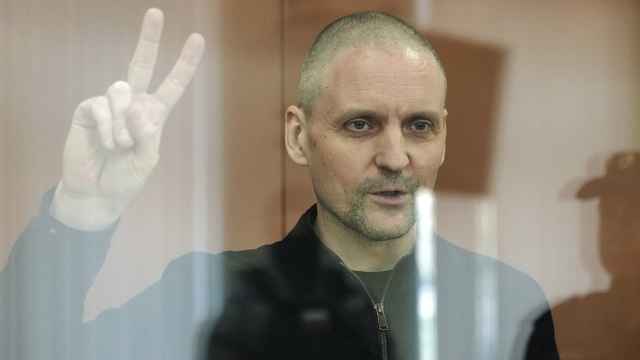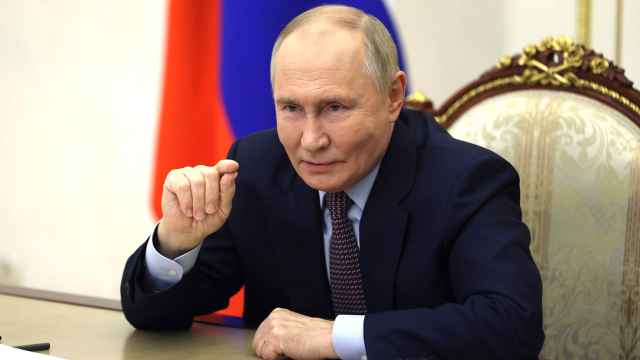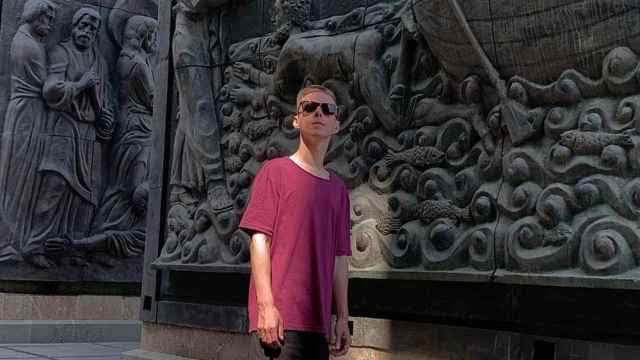Suddenly, the Cyprus crisis blew up, but now it may have been settled. Of course, Cyprus itself loses the most out of this crisis, but Russia comes in second. Russian deposits of close to $4 billion have probably been lost, and the remaining Russian deposits are subject to rigorous capital controls. It did not have to be like this. All involved should all have acted earlier, but in the end, the European Union found a solution.
Contrary to multiple Russian comments, Russia does not look like an innocent victim. This crisis shows the country's inherent dysfunction and its poor relations with the EU. As in the crisis of 2008, Russia is financially vulnerable in spite of its resources because of its own ineffectiveness. Since Russia is excessively bureaucratic, Cyprus has effectively operated as Russia's department for foreign payments for a large number of Russian enterprises.
Cyprus has developed all relevant financial services at reasonable prices. The presence of English law is crucial, but its application is even more important. In Moscow, a group of masked "law enforcement" agents may storm into your office and ask your staff to lie down flat on the floor, taking whatever they desire. That is no way of running a modern country. Until Russia reforms and controls its "law enforcement," Moscow cannot become a financial center.
Prime Minister Dmitry Medvedev pinpointed Russia's legal weakness with his proposal to "create a special zone in the Far East," implicitly suggesting that Russia cannot reform itself sufficiently to manage international financial services. Fortunately, former Finance Minister Alexei Kudrin rebuked him and said it can. What Russia needs is reform of its system, not offshore zones.
Finance is crucial for Russia's national security. Russia spends about $60 billion a year, roughly 3 percent of its gross domestic product, on security services other than defense. These expenses do not grant security. On the contrary, they undermine it because the all-powerful, unpredictable and often arbitrary security services drive Russia's financial sector abroad. Russia would have been better off if it had spent one-third of its annual security budget to bail out Cyprus.
This crisis also highlights the weaknesses in EU-Russian relations. President Vladimir Putin used to have three good friends among the EU leaders: Italian Prime Minister Silvio Berlusconi, German Chancellor Gerhard Schröder and French President Jacques Chirac. Now all three are gone. Berlusconi and Chirac have been prosecuted for corruption, interestingly enough, and Gazprom hired Schröder immediately after his demise in an ethically dubious deal.
Putin's personal relations with the current EU leaders could hardly be worse, and he does nothing to improve them. Most conspicuously, the president insists on taking his big black Labrador Retriever Koni to his meetings with German Chancellor Angela Merkel, despite knowing that she cannot stand dogs. It is no surprise that Merkel keeps him at a distance. Such infantile pettiness belongs to the sandbox and harms Russia's national interests. As newly re-elected president, Putin skipped the Group of Eight summit at Camp Davis last May, offering a pathetic excuse that nobody believed.
On March 18, Putin's public statement on the first Cyprus agreement was memorable: "Such a decision, if it is adopted, will be unfair, unprofessional and dangerous." Little wonder that Merkel did not call Putin during the Cyprus crisis. Regardless of a few desperate Cypriot calls to Moscow, Russia played no role. As usual, the outsider has to pay to the insiders.
Gazprom has reinforced the European engrained view of Russia as a dangerous bully through its multiple threats to East European countries and its cuts of gas supplies to many countries in 2006 and 2009. These practices have led to a steady reduction of its sales to Europe. The European Commission has little choice but to fight Gazprom's monopolistic practices.
According to the quote attributed to Tsar Alexander II, Russia's only allies are its army and navy. The sad thing is that this is pretty much true today. It is difficult for Russia to win over friends when it displays hostility. Russia can ill afford an aggressive foreign policy. After all, the EU economy is 10 times larger than Russia's, and its aggregate defense expenditures are almost five times larger. The weak need to be good diplomats.
Arguably, Cyprus is Russia's only true friend in the global arena. In many ways, it incorporates author Boris Akunin's ideal of a law-abiding middle class. But Russia failed to bail out its friend. Ever since the write-off of the Greek debt in March 2012, it was obvious that the Popular Bank and the Bank of Cyprus needed at least substantial recapitalization or probably liquidation.
Last May, I went to Cyprus to look into the impending crisis. At the central bank, officials were still in a state of happy denial, hoping for a Russian bailout or a private deal, although the situation was unsustainable. Considering its great financial interests in Cyprus, the Russian government had as much reason as the EU to act, but it did nothing while the EU solved the crisis late in the day. Russia defended neither its national interests nor its close friend.
On March 21, in the midst of this crisis, European Commission President Jose Manuel Barroso went to Moscow and met with Medvedev. Once again, the only thing Barroso received from Russia was a public scolding. Medvedev called the EU's original bailout idea "to put it mildly, surprising … absurd … preposterous." Russia has not been constructive or shown good will, whereas it has reinforced its reputation as a malign spoiler.
Sergei Aleksashenko, former first deputy head of the Central Bank, noted that this did no harm to the EU-Russian relations because "it's not possible to damage what does not exist." The Cyprus crisis has been a vivid lesson to Russia on why it needs close relations with the EU.
But the EU needs Russia as well. As Germany surges, Russia no longer seems too big to enter the EU. With a GDP of nearly $2 trillion, Russia matches Britain, France and Italy, and it is only slightly smaller than Germany. The current concern within the EU is that Germany is becoming too dominant. As a member of the EU, Russia could help rebalance the forces within the union.
The Cyprus affair shows how unsustainable Russia's current policies are. Economically, Russia is ripe for the EU, but before it can be considered for membership, Russia first needs to become democratic, cooperative and law-abiding.
Anders Aslund is a senior fellow at the Peterson Institute for International Economics in Washington.
Related articles:
A Message from The Moscow Times:
Dear readers,
We are facing unprecedented challenges. Russia's Prosecutor General's Office has designated The Moscow Times as an "undesirable" organization, criminalizing our work and putting our staff at risk of prosecution. This follows our earlier unjust labeling as a "foreign agent."
These actions are direct attempts to silence independent journalism in Russia. The authorities claim our work "discredits the decisions of the Russian leadership." We see things differently: we strive to provide accurate, unbiased reporting on Russia.
We, the journalists of The Moscow Times, refuse to be silenced. But to continue our work, we need your help.
Your support, no matter how small, makes a world of difference. If you can, please support us monthly starting from just $2. It's quick to set up, and every contribution makes a significant impact.
By supporting The Moscow Times, you're defending open, independent journalism in the face of repression. Thank you for standing with us.
Remind me later.






